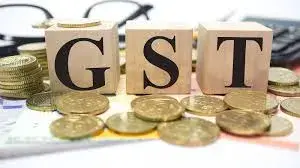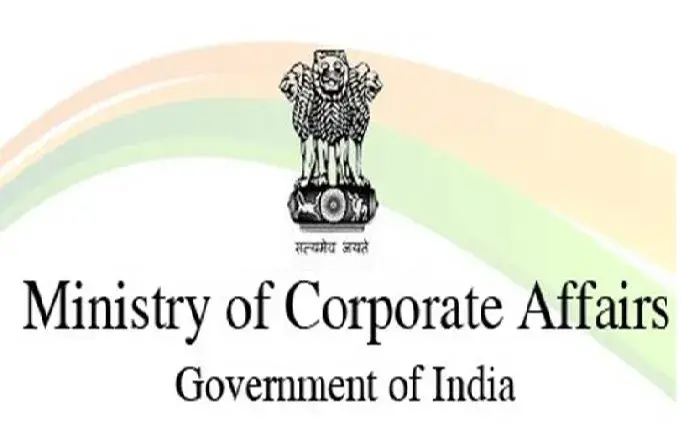India: Reserve Bank of India cautions regarding risk of virtual currencies including Bitcoins
 Reserve Bank of India has once again restated its concern over the usage of Virtual Currency, including Bitcoins, by drawing attention of the public to its earlier press releases.
Reserve Bank of India has once again restated its concern over the usage of Virtual Currency, including Bitcoins, by drawing attention of the public to its earlier press releases.
India: Anti-Profiteering Application Form Released For Consumers
 Anti-profiteering application form has been released which can be used by a consumer of goods or services to file a complaint before the anti-profiteering committee against businesses for not passing on benefits of lower taxes in the goods and services tax
Anti-profiteering application form has been released which can be used by a consumer of goods or services to file a complaint before the anti-profiteering committee against businesses for not passing on benefits of lower taxes in the goods and services tax
India: Wilful Defaulter must not buy IBC Assets
 Working towards the aim of reinforcing the insolvency resolution process, amendments have been introduced to the Insolvency and Bankruptcy Code so as to assure compliance to its time bound resolution mechanism.
Working towards the aim of reinforcing the insolvency resolution process, amendments have been introduced to the Insolvency and Bankruptcy Code so as to assure compliance to its time bound resolution mechanism.
India: Govt. won’t allow easy escape for Dishonest Shell Companies
 Stringent strategies have been introduced by the Government for ensuring that Shell Companies are not created or continued for the fulfillment of the malafide intentions of the dishonest entities.
Stringent strategies have been introduced by the Government for ensuring that Shell Companies are not created or continued for the fulfillment of the malafide intentions of the dishonest entities.
India: FSSAI issues latest notifications for effective regulations
 The Food Safety and Standards Authority of India issues notification with regards to tolerance limit of antibiotics and pharmacologically active substances.
The Food Safety and Standards Authority of India issues notification with regards to tolerance limit of antibiotics and pharmacologically active substances.
India: Reserve Bank of India cautions regarding risk of virtual currencies including Bitcoins

Source: www.thesun.co.uk
The Reserve Bank of India (hereinafter referred to as “RBI”) vide its press release 2017-2018/1530[1] dated December 5, 2017, has restated the concern over the usage and flow of Virtual Currency including Bitcoins, by drawing the attention of public to its earlier own press release 2016-17/2054 dated February 1, 2017 and press release 2013-14/1261 dated December 24, 2013.
Whereas, the Supreme Court of India recently issued a notice to the Ministries of Finance, Law and Justice, Information Technology, and market regulators including Securities and Exchange Board of India and the Reserve Bank of India after hearing a Public Interest Litigation (Writ Petition (Civil) no.1076 of 2017) under Article 32 of the Constitution against the Union of India filed by Adv. Dwaipayan Bhowmick seeking a regulatory framework to be laid down on Virtual Currency and wanted that the virtual currency be made accountable to the exchequer.
RBI vide its press release 2016-17/2054 dated February 1, 2017 clarified that it has not given any license/ authorization to any entity/ company to operate such Virtual Currency. Further, it clearly stated that any user, holder, trader, investor etc., will be doing business solely at their own risk.
RBI vide its press release 2013-14/1261 dated December 24, 2013, cautioned all the users, holders and traders of the Virtual Currency, including Bitcoins, about the operational, potential, legal, consumer protection and security related risks involved in such Virtual Currency.
RBI referring to the above mentioned press releases has once again reiterated the concern conveyed by it.
[1]https://rbidocs.rbi.org.in/rdocs/PressRelease/PDFs/PR15304814BE14A3414FD
https://rbidocs.rbi.org.in/rdocs/PressRelease/PDFs/PR205413F23C955D8C
https://rbidocs.rbi.org.in/rdocs/PressRelease/PDFs/IEPR1261VC1213.PDF
http://supremecourtofindia.nic.in/supremecourt/2017/35252/35252_2017_
https://barandbench.com/wp-content/uploads/2017/11/PIL_bitcoin-watermark.pdf
India: Anti-Profiteering Application Form Released For Consumers

Source: www.lawctopus.com
It has been a key challenge for policymakers that the business enterprises have not been passing on the benefit of reduced tax burden. In furtherance of the objective to ensure that consumers enjoy the benefit of lower prices of goods and services under GST, the Government has now released the Anti-Profiteering Application Form (APAF – 1) which can be used by a consumer of goods or services to file a complaint before the anti-profiteering committee against businesses for not passing on benefits of lower taxes in the goods and services tax (GST).
The suppliers of goods and services are under obligation to pass on any reduction in the rate of tax or the benefit of input tax credit to consumers by way of commensurate reduction in prices and if they fail to do the same, the interest of the consumer shall be protected by the National Anti-Profiteering Authority which has the authority to order:
- Reduction in prices;
- Return of the amount not passed on with interest @ 18% to the recipient;
- Imposition of penalty; and
- Cancellation of registration of the supplier.
The form also contains contact details of the Standing Committee on Anti-profiteering. The complaint will have to be filed in this form before the standing committee on anti-profiteering for all-India complaints or before the state screening committees if the profiteering is of a local nature.
The consumer can file the complaint based on the suspicion of profiteering, however, he/she shall be required to furnish details of the sale price of the product and the tax rates applicable on the product in the pre as well as post GST era. The same has to be backed by documentary evidences like invoice, price list etc. This 3 page form includes detailed instructions to prescribe a methodology to ascertain whether companies are passing on the tax reduction under GST and benefits derived from input tax credits to consumers.
India: Wilful Defaulter must not buy IBC Assets

Source : economictimes.indiatimes.com
In order to protect honest creditors against the unscrupulous debtors who are using insolvency as a shield to evade of their liabilities, the Insolvency and Bankruptcy Code, 2016 (hereinafter referred to as “IBC”) was incorporated. The IBC works in pursuit of insolvency resolution process in a time-bound manner for maximization of value of assets which promotes entrepreneurship, availability of credit and balance the interests of all the stakeholders.
In the recent approach, the President of India vide notification dated November 23, 2017, promulgated Ordinance no. 7 of 2017 (hereinafter referred to as “Ordinance”) with a view to strengthen the insolvency process. It has been considered necessary to provide for prohibition of certain persons from submitting a resolution plan who can account for their antecedents, may adversely impact the credibility of the processes under the consideration of IBC. The ordinance has laid down thecategory of persons not eligible to submit a resolution plan which include the following person(s)/ connected person(s) (Section 29A introduced):
- Undischarged Insolvent;
- Willful Defaulter as per the Reserve Bank of India (hereinafter referred to as “RBI”) guidelines issued under the Banking Regulation Act, 1949 (hereinafter referred to as “B.R. Act”); or
- Whose account has been classified as “Non-Performing Asset” as per RBI guidelines issued under B.R. Act and a period of 1 year has elapsed from such classification and who has failed to make the payment of the overdue accounts with the interest thereon along with charges related to Non-Performing assets before the submission of the resolution plan;
- Convicted for any offence punishable with imprisonment for 2 years or more;
- Disqualified Director under the Companies Act, 2013;
- Prohibited by the Securities Exchange Board of India from trading in securities or accessing the security markets;
- Indulged in preferential/ undervalued/ fraudulent transaction in respect of which order has been made by the Adjudicating Authority under the IBC;
- Executed enforceable guarantee in favour of a creditor, in respect of a corporate debtor under the insolvency resolution process or liquidation under IBC;
Earlier, the Government through its press release dated November 7, 2017, issued Amendments to the Insolvency and Bankruptcy Board of India (Insolvency Resolution Process for Corporate Persons) Regulations, 2016, and the Insolvency and Bankruptcy Board of India (Fast Track Insolvency Resolution Process for Corporate Persons) Regulations, 2017. The said amendments ensures that the resolution applicants would be subject to more stringent scrutiny before approval of their insolvency resolution plans by the Committee of the Creditors (constituted by the Resolution Professional under the provisions of IBC).
Additionally, with the intent to increase the efficacy of the proceedings initiated under the IBC, the Central
Government (hereinafter referred to as “Government”) forewarned the entire banking sector to be vigilant enough to ensure that willful offenders do not derive benefit of the process. The Government focuses on ensuring that the unfair entities are prevented from re-entering the system by the way of purchase of assets. It was elaborately discussed the concerns regarding the increasing outstanding debts. Around 12 accounts each having more than INR 5,000 crore of unsettled loans account for 25 % of total Non-Performing Assets of banks are under the IBC process. The net amount due to these accounts taken together is INR 1.75 lakh crore. The banks are also interested to get their other large non-performing accounts considered by the National Company Law Tribunal (NCLT) as per the IBC. There has been an increase in the Non-performing assets of public sector banks from Rs. 2.78 lakh crore in March 2015 to Rs. 7.33 lakh crore as of June 2017.
Conclusion
The Government has been consistently working towards refining and improving the new legal regime being set forth under the IBC. The efforts of the IBC attempt to revive the corporate entity by divesting the management of the business or proceed with the liquidation in a restricted time frame.
By the introduction of the recent changes, the legislation is acting in the furtherance of the objective of the IBC to safeguard the interests of the innocent creditors. The underlying fundamental of the IBC of effective resolution can be achieved only with a credible resolution plan drawn up realistically and implemented successfully. It is essential that the resolution plan drawn up do not result in failure post execution. To ensure the acceptability of the best suited plan for resolution, stringent approval mechanism has been adopted where under the credibility of the person submitting such plan shall be scrutinized. The new amendment brought via the ordinance has specified the criteria of persons eligible for submitting the resolution plans thus assuring the definite implementation of IBC.
The Government has also imposed the requirement of the Banks to be vigilant in respect of the dishonest entities making an endeavor to reduce the adding liability of the Non-Performing Assets. This exercise of conscious effort on the end of the Banks would help them identify the defaulters and prevent them from using the IBC mechanism to their advantage.
India: Govt. won’t allow easy escape for Dishonest Shell Companies

Source: www.thehindubusinessline.com
In the pursuit of the preventing the use of the Shell companies as an instrument of conducting illegal transactions, the Government imposed several restrictions in this regard. Besides limiting the number of layers of subsidiaries to be laid down by a company by the passing of the Companies Amendment Bill, 2017, the Government has also struck off the name of a number of the shell companies (over 200,000 companies) from the register of companies along with announcement of disqualification of the directors (more than 100,000 Directors) of such companies. With the recent approach of the Government, trouble continues for the Shell companies.
18 companies have been put under the scanner of the Serious Fraud Investigation Office (hereinafter referred to as “SFIO”) on the reference made by the Government. The SFIO is a multi-disciplinary organization under Ministry of Corporate Affairs, consisting of experts in the field of accountancy, forensic auditing, law, information technology, investigation, company law, capital market and taxation for detecting and prosecuting or recommending for prosecution white-collar crimes/frauds.
The SFIO is required by the Government to investigate the affairs of the companies which was involved in depositing and withdrawing large sums during demonetization. The regional directors have been ordered to verify the records of the companies which operated thousands of bank accounts or which had smaller deposits.
Depending upon the report of the SFIO, the government will proceed with suitable actions against the defaulting companies including an initiation of criminal proceedings against them (under Section 447 of the Companies Act, 2013). The penal consequences may include liability to serve imprisonment for a term of 10 years in case of fraud or penalty of equal to the value of the offence. The Government has asked companies to share details of deposits of old currency notes during the demonetization period. The bank accounts of the companies detected to have been at fault are in the process of being frozen.
Conclusion
The proactive measures of the Government help to ensure that shell companies are not being used as a media to take undue advantage by the diversion of funds and propagation of black money in the economy. Stricter implantations brought forth are indicative of the vigilant attitude of the Government which is working towards the eliminating the dummy companies involved in dishonest practices.
India: FSSAI issues latest notifications for effective regulations

Source: www.fssai.gov.in
In order to ensure better management and effective control regarding the standards to be maintained in various products available in the market the Food Safety Standards Authority of india has issued the following regulations:
Notification: regarding tolerance limit of antibiotics and pharmacologically active substances
The Food Safety and Standards Authority of India (FSSAI) with previous approval of the Central Government, in exercise of the powers conferred by Clause (i) and (j) of Sub-Section (2) of Section 92 read with Section 20 and Section 21 of the Food Safety and Standards Act, 2006 (34 of 2006), proposed to further amend the Food Safety and Standards (Food Products Standards and Food Additives) Regulations, 2011, with regards to tolerance limit of antibiotics and pharmacologically active substances. To this effect, the draft regulations have been published, dated November 7, 2017, as required under Sub-Section (1) of Section 92 of the said Act, for the information of all persons likely to be affected thereby and a notice was issued stating that the said draft regulations shall be taken into consideration after the expiry of the period of thirty days from the date on which copies of the Gazette containing the notification are available to the public.
The notification also stated that any objections or suggestions may be addressed to the Chief Executive Officer, Food Safety and Standards Authority of India, FDA Bhawan, Kotla Road, New Delhi- 110002 or can be contacted over email at regulation@fssai.gov.in.
Further, any objections or suggestions, which may be received from any person with respect to the draft regulations before the expiry of thirty days from the date of issuing of the notification shall be considered by the Food Safety and Standards Authority of India.
Notification on provisions for additional additives on various food categories
The Food Safety and Standards Authority of India with previous approval of the Central Government, in exercise of the powers conferred by Clause (e) of Sub-Section (2) of Section 92 of the Food Safety and Standards Act, 2006 (34 of 2006), proposed to further amend the Food Safety and Standards (Food Products Standards and Food Additives) Regulations, 2011, with regards to the provisions for additional additives on various food categories. To this effect, the draft regulations have been published, dated November 7, 2017, as required under Sub-Section (1) of Section 92 of the said Act, for the information of all persons likely to be affected thereby and a notice was issued stating that the said draft regulations shall be taken into consideration after the expiry of the period of thirty days from the date on which copies of the Gazette containing the notification are available to the public.
The notification also stated that any objections or suggestions may be addressed to the Chief Executive Officer, Food Safety and Standards Authority of India, FDA Bhawan, Kotla Road, New Delhi- 110002 or can be contacted over the email at regulation@fssai.gov.in.
Further, any objections or suggestions, which may be received from any person with respect to the draft regulations before the expiry of thirty days from the date of issuing of the notification shall be considered by the Food Safety and Standards Authority of India.

